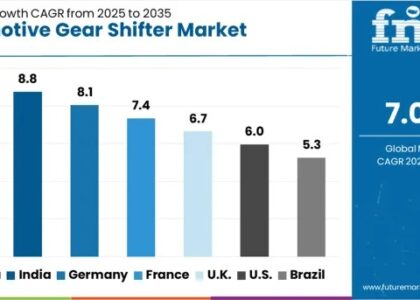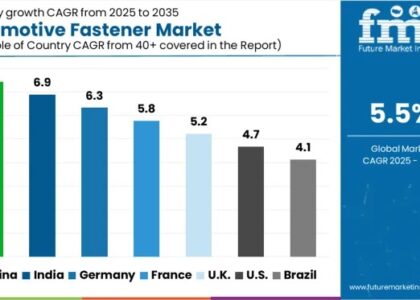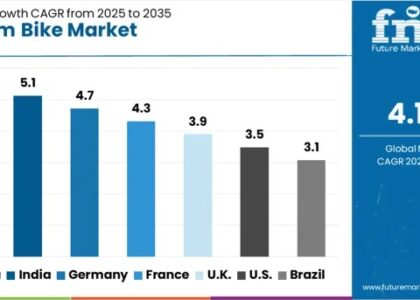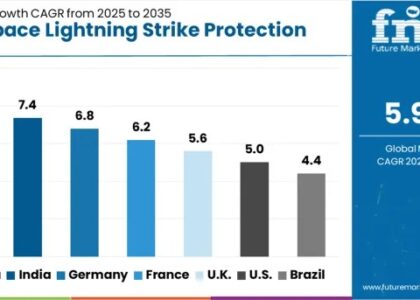The global packaging foam market is anticipated to reach a valuation of US$ 6.9 billion in 2023, driven by growing focus on product safety & protection. The trend is expected to create new opportunities for the market, leading to a projected CAGR of 5.9% between 2023 and 2033, and reaching a total valuation of approximately US$ 12.3 billion by 2033.
One of the primary factors driving the growth of the packaging foam market include the increasing e-commerce and retail industry. The rapid expansion of the e-commerce and retail sectors is a major driver for the packaging foam market. There is a growing need for protective packaging materials to ensure the safe transportation of products, with the rise of online shopping. Packaging foams provide excellent cushioning and shock absorption properties, reducing the risk of damage during transit. The surge in online shopping, coupled with the global growth of the retail industry, is expected to drive the demand for packaging foams.
Find more insights in a sample report: https://www.futuremarketinsights.com/reports/sample/rep-gb-4771
A significant factor contributing to market growth is the focus on sustainable packaging solutions. The growing emphasis on sustainability is revolutionizing the packaging industry, including the foam segment. Manufacturers and consumers alike are increasingly concerned about the environmental impact of packaging materials, which has led to a shift towards sustainable packaging foams made from recyclable or biodegradable materials. The foams offer similar protective properties while reducing waste and carbon footprint. The demand for eco-friendly packaging solutions is expected to fuel the growth of the packaging foam market.
Technological advancements in foam manufacturing have significantly improved the performance and versatility of packaging foams. Innovations in materials and production processes have led to the development of foams with enhanced properties such as better cushioning, improved energy absorption, reduced weight, and increased durability. The advancements make packaging foams more attractive to industries seeking high-performance and cost-effective solutions. The ability to customize foam shapes and designs further adds value to the packaging foam market.
Key Takeaways from the Market Study
Global Packaging Foam market was valued at US$ 6.5 billion by 2022-end.
From 2018 to 2022, the market demand expanded at a CAGR of 4.8%.
India is expected to hold a dominant CAGR of 8.1% during the forecast period.
By material type, the polyurethane (PU) segment is expected to constitute a CAGR of 5.8% in 2033.
On the basis of end-use, the consumer electronics segment is expected to dominate the market with a CAGR of 5.7% in 2033.
From 2023 to 2033, Packaging Foam market is expected to flourish at a CAGR of 5.9%.
By 2033, the market value of Packaging Foam is expected to reach US$ 12.3 billion.
Expansion of automotive sector, across the globe is a major factor that is expected to propel the growth of the packaging foam market in the near future, remarks an FMI analyst.
Competitive Landscape
Prominent players in the packaging foam market are Armacell, JSP, Zotefoams Plc, BASF SE, Sealed Air Corporation, Synthos SA, Rogers Corporation, Kaneka Corporation, Arkema, and FoamPartner Group, among others.
Recent Developments
In 2021, Zotefoams PLC (UK) announced the expansion of its production capacity for polyolefin foams, including packaging foams. The company’s investment in new manufacturing facilities aimed to meet the growing demand for high-quality foam products in various industries.
In 2020, Armacell International S.A. (Luxembourg) introduced a new range of foam packaging solutions for the food and beverage industry. The company’s foam packaging materials provided excellent thermal insulation and protection, ensuring the freshness and integrity of perishable goods during transport.
In the same year, BASF SE (Germany) developed a new foam material with enhanced moisture resistance properties. The innovation was specifically targeted at industries such as pharmaceuticals and electronics, where protection against humidity and moisture damage was crucial.
In 2020, Sonoco Products Company (USA) launched a sustainable packaging foam made from plant-based materials. The eco-friendly foam solution catered to the increasing demand for environmentally responsible packaging options.
More Valuable Insights Available
Future Market Insights offers an unbiased analysis of the global packaging foam market, providing historical data for 2018 to 2022 and forecast statistics from 2023 to 2033.
To understand opportunities in the packaging foam market, the market is segmented on the basis of material type (polystyrene, polyurethane (PU), poly vinyl chloride (PVC), and others), by product type (flexible foam, and rigid foam), by end-use (automobile industry, construction industry, food & beverages industry, consumer electronics, and homecare & personal care), and by application (inserts, corner & edge protectors, anti-static ESD foam, liners, and other), across five major regions (North America, Latin America, Western Europe, Eastern Europe, South Asia & Pacific, East Asia, and Middle East & Africa (MEA)).
The packaging team at Future Market Insights offers expert analysis, time-efficient research, and strategic recommendations with the objective to provide authentic insights and accurate results to help clients worldwide. With a repertoire of over 100+ reports and 1 Billion+ data points, the team has been analyzing the industry lucidly in 50+ countries for over a decade. The team provides a brief analysis on key trends including competitive landscape, profit margin, and research development efforts.
Grow your profit margin with Future Market Insights Inc. – Buy the report: https://www.futuremarketinsights.com/checkout/4771
Key Segments Profiled In the Global Packaging Foam Market
By Material Type:
Polystyrene
Polyurethane (PU)
Poly Vinyl Chloride (PVC)
Others
By Product Type:
Flexible Foam
Rigid Foam
By End Use:
Automobile Industry
Construction Industry
Food & Beverages Industry
Consumer Electronics
Homecare & Personal Care
By Application:
Inserts
Corner & Edge Protectors
Anti-Static ESD Foam
Liners
Other
Region:
North America
Latin America
Western Europe
Eastern Europe
South Asia and Pacific
East Asia
Middle East and Africa (MEA)
About Future Market Insights (FMI)
Future Market Insights, Inc. (ESOMAR certified, recipient of the Stevie Award, and a member of the Greater New York Chamber of Commerce) offers profound insights into the driving factors that are boosting demand in the market. FMI stands as the leading global provider of market intelligence, advisory services, consulting, and events for the Packaging, Food and Beverage, Consumer Technology, Healthcare, Industrial, and Chemicals markets. With a vast team of over 5000 analysts worldwide, FMI provides global, regional, and local expertise on diverse domains and industry trends across more than 110 countries.
Contact Us:
Future Market Insights Inc.
Christiana Corporate, 200 Continental Drive,
Suite 401, Newark, Delaware – 19713, USA
T: +1-845-579-5705
For Sales Enquiries: sales@futuremarketinsights.com
Website: https://www.futuremarketinsights.com
LinkedIn| Twitter| Blogs | YouTube






